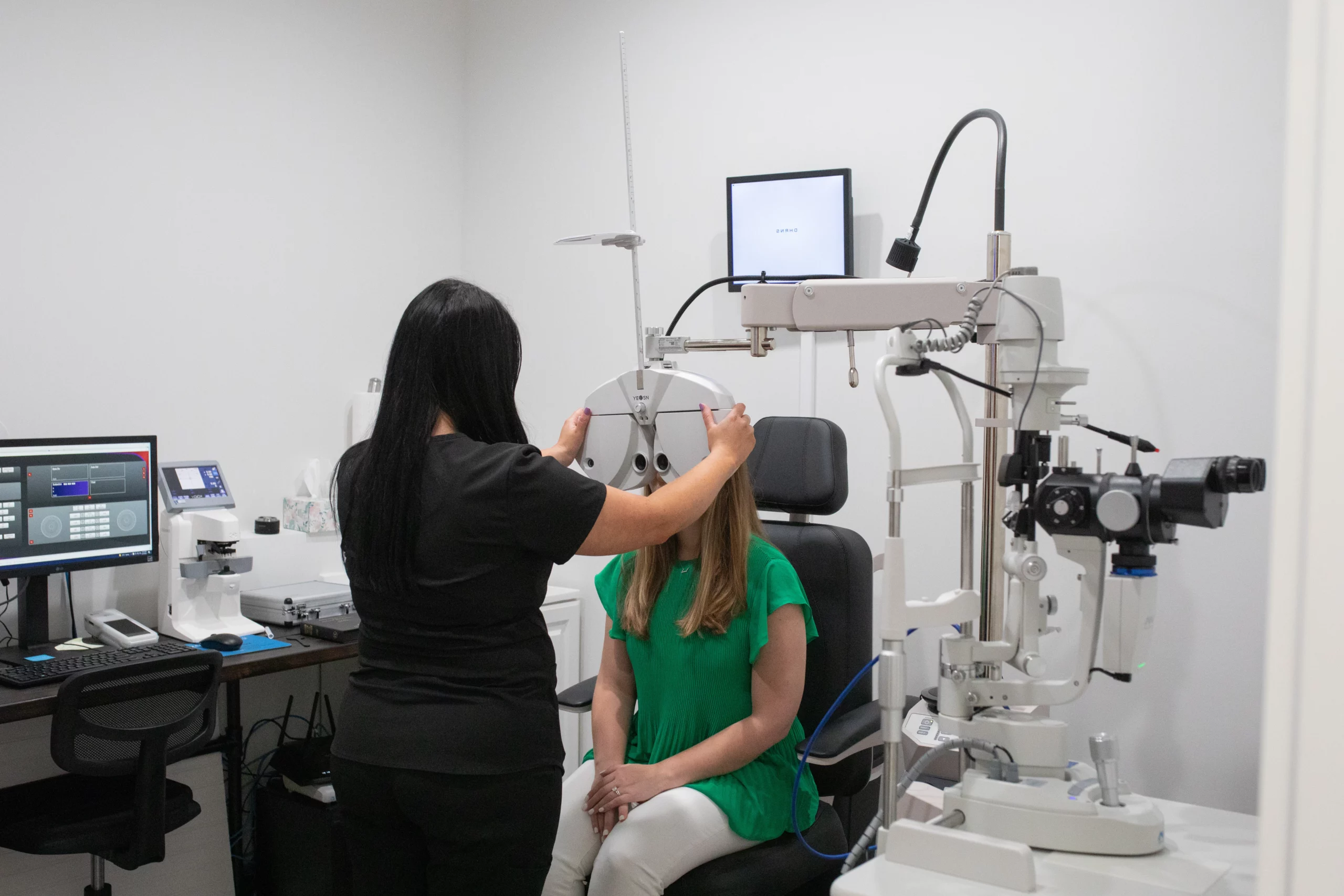When it comes to eye health, finding the right care is fundamental for maintaining good vision. For many patients, this requires the expertise of not just one, but two types of eye care professionals. Here’s how ophthalmologists and retina specialists bring unique skills to the examination room, and when they work together, the results often lead to healthier outcomes:
Key Differences
While both ophthalmologists and retina specialists work in eye care, their areas of expertise differ. Ophthalmologists are medical doctors trained to diagnose and treat various eye conditions. They focus specifically on diseases and disorders of the retina.
Ophthalmologists
Ophthalmologists are medical doctors who focus on the overall health of the eye. They diagnose and treat a wide range of conditions, from refractive issues like nearsightedness and farsightedness to diseases such as glaucoma and cataracts. They also perform general eye surgeries and prescribe corrective lenses.
Retina Specialists
Retina specialists, on the other hand, are ophthalmologists with additional training in conditions related to the retina and vitreous, such as macular degeneration, diabetic retinopathy, and retinal detachment. Their advanced knowledge makes them valuable when dealing with complex or specialized issues affecting the back of the eye.
How Collaboration Enhances Eye Care
Ophthalmologists often serve as a starting point for eye health evaluations. They look at the overall condition of your eyes, treating common issues and identifying when specialized care is needed. When a condition involving the retina arises, they refer patients to a retina specialist for targeted treatment. This partnership allows patients to benefit from a spectrum of expertise. The ophthalmologist ensures the entire eye is considered, while the specialist hones in on specific, sometimes challenging areas, like the retina and vitreous.
Comprehensive Diagnosis
Collaboration between the two ensures a thorough diagnosis. Broad evaluations from an ophthalmologist provide the context for deeper investigations led by a specialist. Conditions that might otherwise go unnoticed receive the attention they require.
Advanced Treatment Options
Through teamwork, patients gain access to an expanded range of treatments. Ophthalmologists handle routine care while retina specialists implement advanced procedures like laser therapy or injections for retinal care. This collaborative approach makes sure that patients receive comprehensive care for their unique vision needs.
Better Outcomes
When two experts work together, it often leads to clearer communication and a more tailored treatment plan. For patients, this means quicker diagnoses, efficient treatments, and long-term eye health management from professionals who understand how to balance care across multiple perspectives.
When You Should See a Retina Specialist
Your ophthalmologist may recommend seeing a specialist if symptoms like flashes of light, sudden loss of vision, or increased floaters occur. These signs often indicate conditions that benefit from specialized training. For ongoing eye conditions such as diabetes-related eye issues or macular degeneration, specialists provide monitoring and advanced care that complements treatment from your ophthalmologist.
Get Collaborative Eye Care
The joint efforts of ophthalmologists and specialists offer a supportive and complete approach to eye health. Whether you’re getting a routine check-up or navigating a complicated retinal condition, knowing multiple experts are working together on your behalf is reassuring. If you’re experiencing any changes in your vision or have been advised to see a retina specialist, don’t hesitate to reach out to trusted professionals in the field.
- mylovelyfurryfriend discover expert tips on dog health
- Infectious Diseases Updates – Stay Informed, Stay Protected!
- Wegovy For Weight Loss – A Breakthrough in Managing Obesity!
- Emergency Medicine Forum – A Hub for Fast-Paced Knowledge, Support & Updates!
- Pediatrics Discussions – Insights, Challenges, and Expert Advice for Better Child Health!





Leave a Reply